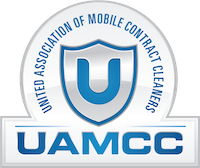Andrew Cruz
Member
In the realm of high-pressure cleaning, the terms "pressure washer" and "jet wash" are often used interchangeably. Yet, confusion persists about whether they are the same or different. This post aims to clarify these terms, explore their uses, and guide you in selecting the right tool for your cleaning needs.
Understanding Pressure Washers and Jet Washes
Essentially, pressure washers and jet washes are the same device: a high-pressure cleaning tool. They use a high-pressure water spray to remove stubborn substances from various surfaces.
How They Work
Regardless of the name, the functionality remains the same. These machines comprise a motor (electric or gas-powered) that pumps water through a hose at high pressure. The result is a powerful spray capable of dislodging tough dirt and grime.
Regional Naming Conventions
The primary distinction lies in regional terminology preferences:
Pressure Washer: Predominantly used in North America, this term covers a range of high-www.pressuretech-llc.compressure washing machines.
Jet Wash: More common in the UK and parts of Europe, this term refers to the same machines, highlighting the jet-like water spray.
Applications and Uses
These tools are versatile:
1. Home Exteriors: Clean siding and brickwork effectively.
2. Vehicles: Ideal for removing road grime from cars and larger vehicles.
3. Driveways and Paths: Remove oil stains and dirt from concrete surfaces.
4. Graffiti Removal: Clean public and private properties.
5. Decks and Patios: Maintain wooden surfaces with gentle washing.
Choosing the Right Machine
Key considerations include:
- Power Source: Electric models are quieter, while gas models offer more power.
- Pressure Rating (PSI): Determines the cleaning power.
- Water Flow (GPM): Indicates the speed of cleaning.
- Attachments: Varying nozzles and attachments cater to different cleaning needs.
Safety Precautions
Safety is paramount:
- Wear protective gear, including goggles and gloves.
- Understand the power of the spray.
- Be cautious on softer surfaces.
- Ensure electrical safety for electric models.
Maintenance Tips
Ensure longevity by:
- Regularly inspecting hoses and nozzles.
- Storing in a dry, safe place.
- Cleaning the machine after use.
Conclusion
Whether called a pressure washer or a jet wash, these tools are invaluable for various cleaning tasks. Understanding their functions and safe usage can maximize their benefits. With the right care, these machines can be a powerful ally in maintaining cleanliness and hygiene in a range of settings.
FAQs
Q: Are these machines environmentally friendly?
A: Yes, they use less water than traditional methods and can reduce the need for chemicals.
Q: Can I rent a pressure washer?
A: Many home improvement stores offer rentals, a cost-effective option for occasional use.
This concise guide should help demystify the terms and provide practical insights into the effective use of pressure washers and jet washes. Whether for home or commercial use, understanding these tools can lead to more efficient and effective cleaning.
Andrew Cruz Owner,
Pressure Tech
 Colorado Springs’ Premier Power Washing Services
Colorado Springs’ Premier Power Washing Services 
Contact: 856-442-WASH | pressuretech-llc.com Expert in House, Patio, Driveway, & Commercial Cleaning
Expert in House, Patio, Driveway, & Commercial Cleaning Enhancing Curb Appeal in Colorado Springs, CO
Enhancing Curb Appeal in Colorado Springs, CO
Understanding Pressure Washers and Jet Washes
Essentially, pressure washers and jet washes are the same device: a high-pressure cleaning tool. They use a high-pressure water spray to remove stubborn substances from various surfaces.
How They Work
Regardless of the name, the functionality remains the same. These machines comprise a motor (electric or gas-powered) that pumps water through a hose at high pressure. The result is a powerful spray capable of dislodging tough dirt and grime.
Regional Naming Conventions
The primary distinction lies in regional terminology preferences:
Pressure Washer: Predominantly used in North America, this term covers a range of high-www.pressuretech-llc.compressure washing machines.
Jet Wash: More common in the UK and parts of Europe, this term refers to the same machines, highlighting the jet-like water spray.
Applications and Uses
These tools are versatile:
1. Home Exteriors: Clean siding and brickwork effectively.
2. Vehicles: Ideal for removing road grime from cars and larger vehicles.
3. Driveways and Paths: Remove oil stains and dirt from concrete surfaces.
4. Graffiti Removal: Clean public and private properties.
5. Decks and Patios: Maintain wooden surfaces with gentle washing.
Choosing the Right Machine
Key considerations include:
- Power Source: Electric models are quieter, while gas models offer more power.
- Pressure Rating (PSI): Determines the cleaning power.
- Water Flow (GPM): Indicates the speed of cleaning.
- Attachments: Varying nozzles and attachments cater to different cleaning needs.
Safety Precautions
Safety is paramount:
- Wear protective gear, including goggles and gloves.
- Understand the power of the spray.
- Be cautious on softer surfaces.
- Ensure electrical safety for electric models.
Maintenance Tips
Ensure longevity by:
- Regularly inspecting hoses and nozzles.
- Storing in a dry, safe place.
- Cleaning the machine after use.
Conclusion
Whether called a pressure washer or a jet wash, these tools are invaluable for various cleaning tasks. Understanding their functions and safe usage can maximize their benefits. With the right care, these machines can be a powerful ally in maintaining cleanliness and hygiene in a range of settings.
FAQs
Q: Are these machines environmentally friendly?
A: Yes, they use less water than traditional methods and can reduce the need for chemicals.
Q: Can I rent a pressure washer?
A: Many home improvement stores offer rentals, a cost-effective option for occasional use.
This concise guide should help demystify the terms and provide practical insights into the effective use of pressure washers and jet washes. Whether for home or commercial use, understanding these tools can lead to more efficient and effective cleaning.
Andrew Cruz Owner,
Pressure Tech
 Colorado Springs’ Premier Power Washing Services
Colorado Springs’ Premier Power Washing Services 
Contact: 856-442-WASH | pressuretech-llc.com
 Expert in House, Patio, Driveway, & Commercial Cleaning
Expert in House, Patio, Driveway, & Commercial Cleaning Enhancing Curb Appeal in Colorado Springs, CO
Enhancing Curb Appeal in Colorado Springs, CO